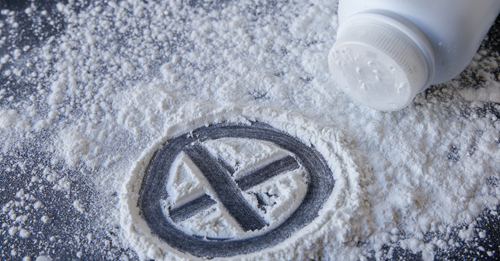On June 23, in a unanimous decision, a three-judge panel of the Missouri Court of Appeals for the Eastern District reduced the damages awarded by the jury in a 2018 trial that linked Johnson & Johnson talc products to cancer, by more than half from $4.7 billion to $2.12 billion, even as it upheld the verdict itself. J&J had appealed the massive verdict in favor of 22 women suffering from ovarian cancer and continues to maintain its product is safe and asbestos-free.
In its appeal, J&J offered a number of arguments, including the contention that its due process rights were violated when the circuit court allowed the matter to proceed with 22 plaintiffs instead of breaking them up into individual trials. The company also attacked the plaintiffs’ scientists, arguing that it was improper to allow out-of-state plaintiffs to pursue the cases in Missouri. On this last issue, the court found that 15 of the 17 out-of-state plaintiffs had proven a connection to Missouri through their use of Shower to Shower Shimmer, a talc product manufactured for J&J Consumer by Missouri corporation Pharma Tech. The court clarified that their claims would be limited to those against the Missouri company; both the compensatory and punitive damage awards were subsequently reduced accordingly.
The court’s findings on several legal issues may present a difficult challenge to J&J in future claims and could make it harder for the company to argue that its rights are violated in multi-plaintiff trials or that punitive damages are improper or unconstitutionally high. In upholding the compensatory to punitive damages ratio allocated by the jury, the judge noted that the award was reasonable given J&J’s “outrageous conduct”. The court also refused to exclude some of the plaintiffs’ experts, noting that the witnesses’ credibility should be an issue for the defendant to raise at trial; this may make it difficult for J&J to argue for their exclusion in future trials.
J&J immediately announced it would appeal to the Missouri Supreme Court.
In another talc trial, this one based in New Jersey state court, the company’s motion to set aside or reduce a $186 million combined punitive damages award made back in February, was denied by Superior Court Judge Ana C. Viscomi. The original punitive damages amount of $750 million had been reduced subject to the state’s statutory cap.
In the motion, J&J argued, among other things, that it was improper for the plaintiffs to have questioned CEO Alex Gorsky about why he allegedly exercised stock options the same day a damaging Reuter’s article about the company was published. In response, the judge said that J&J’s conduct had been “reprehensible” and that the company had engaged in a series of misdeeds, including selling baby powder containing talc that it knew was contaminated with asbestos. The judge also denied J&J’s motion for a mistrial which was based on the judge’s striking of J&J attorney Diane Sullivan’s closing argument. Judge Viscomi noted that she had repeatedly admonished Ms. Sullivan regarding her allegations that plaintiffs’ attorneys had created evidence to support their claims.
Click on this link for information on Verus’ Mass Tort Services. To contact us, fill out this form or email us at info@verusllc.com and we will reply immediately.







